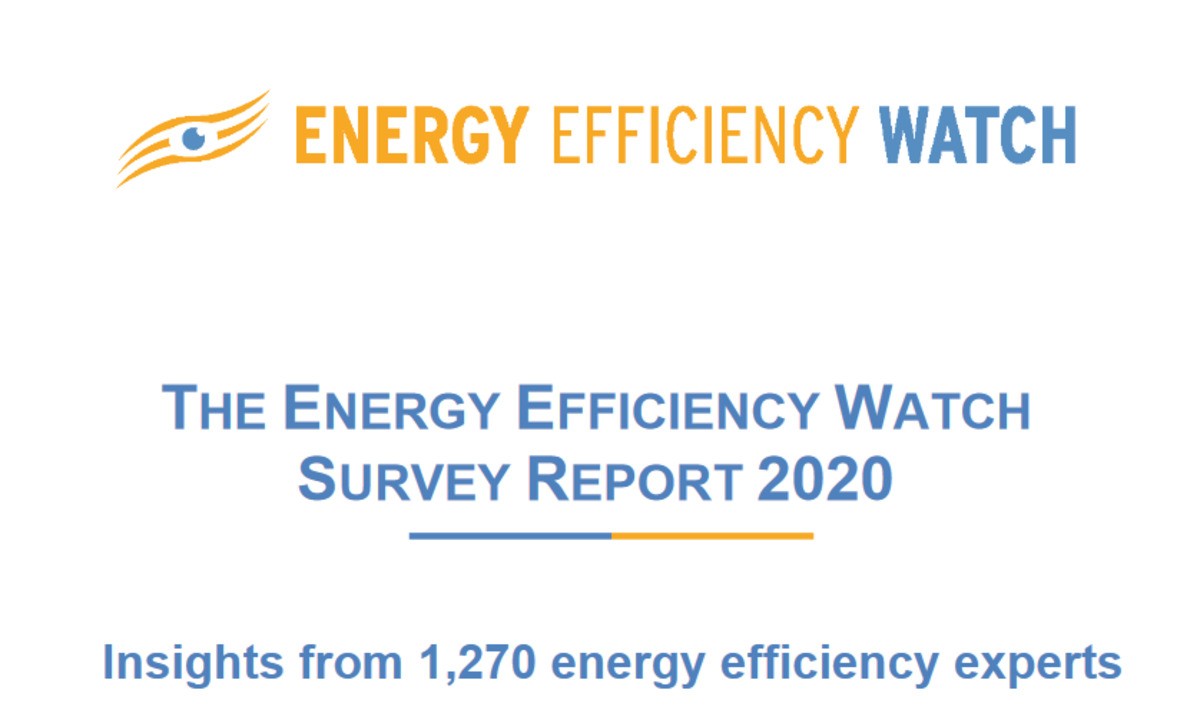The Energy Efficiency Watch - Survey Report 2021

The EEW4 survey objectives and approach: Over the last 15 years, the importance of energy efficiency in European policy has steadily increased. The adoption of the "Energy Efficiency First" principle and the Green Deal brought a new policy era, also for energy efficiency. Since 2006, Energy Efficiency Watch (EEW) projectshave accompanied thispolicy development and implementation process. The EEW creates feedback loopson the implementation of European and national energy efficiency policies and thus enables mutual learning on effective policy making across the EU. Additionally, the Energy Efficiency Watch 4 project (EEW4)introduced a new element–a focus on narrative development and implementation.
The EEW4 is funded by the H2020 programme and coordinated by Eufores. It runs from June 2019 to May 2022. Further information at www.energy-efficiency-watch.org. One key activity of the EEW4 project was an extensive surveyin which 1,270 energy efficiency experts from all 27 Member Stateswere consulted. The aim of the survey was twofold: firstly, to learn how they see the "real-life" progress of energy efficiency policies in their own countries(similar to the previous EEW surveys carried out in 2012 and 2015).
Secondly, it aimed to contribute to a deeper understanding of what constitutes a successful narrative and of which stakeholder groups are key in different countries. It also enquired about the current positioning of energy efficiency in the public debate and the perception of key stakeholders' opinions on it. Following extensive pre-testing, the survey was carried out between February and June 2020, mostly using an online questionnaire. Participants weremostly from the business and the public sectors, universities and research,andenergy agencies.The very high-level of response was due to intensive roll-out activities.
The first part of the survey was dedicated to gathering viewson energy efficiency policy progress in the last 3 years. In order tocompare the progress across countries and policy fields, a "progress indicator" was calculated. The results are shown in the table below(details see page 14). Generally,a lack of progress can be observeddespite the much-increasedambition levels. No new dynamics emerged and the levels of improvement in different fields remained very similar to those reported in 2015.
More established instruments, such as energy efficiency requirements for buildings, product labelling and energy certification of buildings are reported to have the highest positive impactwhereas energy taxation and the inspection of heating and air-conditioning systems areperceived as least effective. A key outcome of the 2015 survey was confirmed: significant "up-and-down" movements for many Member States are observed. This was often triggered by changes in national governments which resulted in either more or less priority onenergy efficiency.
News published on Build Up Publications
Consult the source



